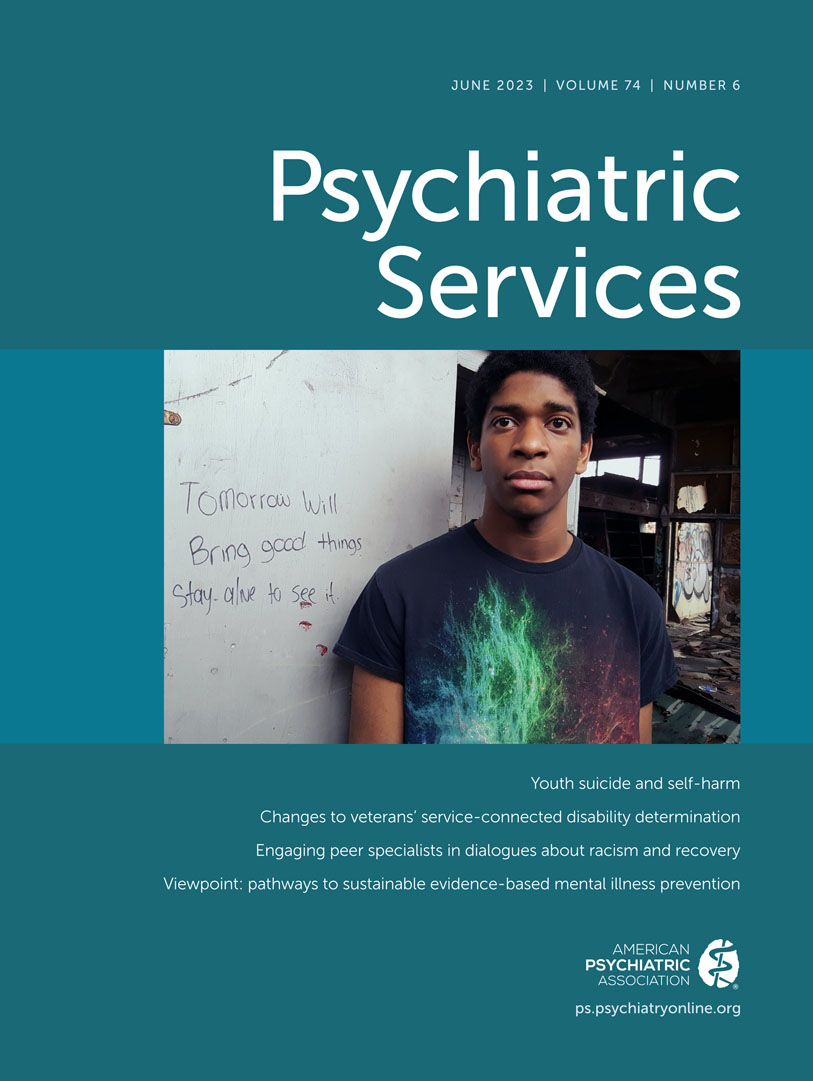A Call for Synergy in Psychiatric and Structural Policy, Research, and Intervention
TO THE EDITOR: We were excited to read the March Taking Issue, “A Collaborative Approach in Prescribing Psychotropics for Persons Experiencing Homelessness” (1), which commented on our review (2). We hoped that our article would spark a conversation, and we thank Zisman-Ilani and colleagues for elevating this discussion to the front of the journal issue. We agree with them that shared decision making is critical to medication prescribing.
Our review discusses the prescribing practices of a diverse group of practitioners who have little collective national voice and who work in underresourced settings. We found that these providers, and their prescribing practices, have minimal representation in the peer-reviewed literature. The fact that they must prescribe psychotropic medications without reference to a more definitive evidence base is a professional shame.
Zisman-Ilani et al. (1) conclude by writing,
With the ongoing debates on the risks, benefits, and relevancy of psychiatric medications, we propose that a planned investment in research to encourage collaborative prescribing is needed and preferred to a narrow focus on the prescription of low-dose psychiatric medications. From a policy perspective, although focusing on medication prescription is the easier path, it is overshadowed by the unresolved and far more complex issue of homelessness and mental health.
To us, this reads as if our field must choose between prioritizing research into shared decision making or certain psychotropic prescribing practicalities. Although significant resource constraints limit the amount of available research and program funding, shouldn’t we strive for all of the above and consider the potential for synergy? It is perhaps emblematic of the long history of inadequate support for community psychiatry that these issues seem to be considered zero sum.
We are also curious about Zisman-Ilani et al.’s focus on homelessness when many individuals—not just those experiencing homelessness—voluntarily seek treatment in low-threshold settings. The public discourse related to the suffering of people experiencing homelessness is, and should be, a national focus. Yet, community psychiatrists and allied professionals are tasked with serving all potentially vulnerable patients, including those who do not seek care in traditional settings due to lack of insurance, concerns about citizenship status, and social and cultural pressures.
As a field, psychiatry can advocate for policy development, research, and investment in both structural interventions and low-threshold mental health services to better serve patients. In this moment of national reckoning with the long-neglected areas of behavioral health and homelessness, we might have a rare opportunity to strategically aim for “both/and” rather than “either/or.” After all, homelessness is a housing availability and affordability issue at the same time that community psychiatry and its affiliated fields are responsible for providing the best care they can to those who cannot access housing and who are suffering today.
1. : A collaborative approach in prescribing psychotropics for persons experiencing homelessness. Psychiatr Serv 2023; 74:221Link, Google Scholar
2. : A rapid review of “low-threshold” psychiatric medication prescribing: considerations for street medicine and beyond. Psychiatr Serv 2023; 74:282–291Link, Google Scholar



